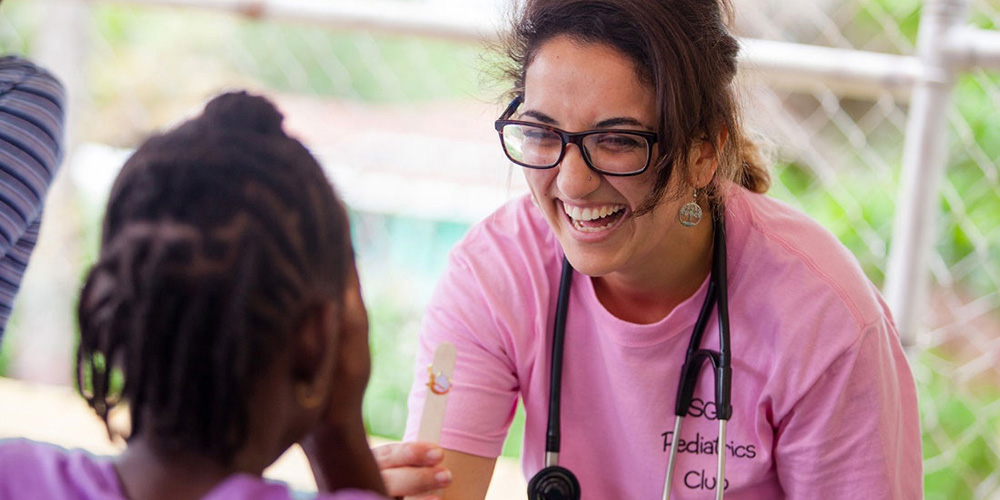One of the exciting challenges in a medical career is discovering a specialty. For med student and resident who are gravitate toward working with young patients, pediatrics is a great specialty. You might thrive as a pediatrician if you are interesting in the possibility of using your medical expertise and training to help maintain and improve the quality of life for young patients..
These physicians develop expertise in an extensive range of diseases and conditions to provide comprehensive medical care to infants, children, adolescents, and young adults. Pediatric doctors play an important role in the health and well-being of these patients by preventing, detecting, and managing physical, behavioral, and developmental issues.
It’s clear there’s a lot that goes into working in this primary care specialty, so. we have provide answers to some frequently asked questions about pediatrics as.
6 Common questions about working as a pediatrician
There are many different elements future physicians wonder about when it comes to working in pediatric care. As you’re assessing whether or not this is the best medical specialty for you, consider the following information about pediatricians.
- What is a pediatric doctor?
Pediatricians are focused on prevention, detection, and management of physical, behavioral, developmental, and social problems that affect young patients. Pediatric care typically starts at birth and lasts through a patient’s 21st birthday — although some patients remain with their pediatrician through the age of 25.It can be helpful to think of pediatric physicians as “internists for children.” An internist is a physician whose medical practice focuses on the body’s internal organs, which requires acute expertise in a range of different organ systems and health conditions.
Pediatricians also need to be developmentally oriented and highly trained in skilled assessment. In addition to their extensive medical training, the best pediatric doctors are also incredibly perceptive and detail oriented. These physicians are tasked with investigating issues their patients may not be able to adequately articulate as children.
- How much do pediatricians make?
There are currently more than 36,000 pediatricians employed across the nation, with new positions opening up each year, according to the U.S. Department of Labor. Most pediatric doctors benefit from working routine hours in hospitals and clinics, although those who specialize in emergency medicine or intensive care may experience more demanding schedules.A pediatrician’s salary can also vary widely depending on the physician’s specialization. National data indicates that the median annual salary for pediatric doctors in 2022 was $190,350.
- How long does it take to become a pediatric doctor?
To become a pediatrician, you must first earn a bachelor’s degree before completing a four-year Doctor of Medicine (MD) program at an accredited medical school. You’ll then need to participate in a pediatric residency program, which takes about three years to complete.Pediatric doctors who opt to pursue a sub-specialization within the field will then need to complete a post-residency fellowship program, which can require from two to six years of additional training, depending on the specialty area.
All in all, the process of becoming a pediatrician — from undergraduate education to residency — can take approximately 11 years of education and training. But those who pursue fellowship programs may take on a maximum of six additional years.
- What does a pediatrician do?
The goals of a pediatric physician are to help reduce infant and child mortality, foster healthy lifestyles, and ease the daily difficulties of those with chronic conditions. The typical day-to-day duties of a pediatrician might include the following:- Performing regular health and wellness checkupsv
- Conducting physical exams
- Tracking a child’s physical, emotional, and social development
- Diagnosing and treating illnesses, injuries, and other health conditions
- Administering vaccines
- Prescribing medication
- Referring patients to specialists, as needed
- Offering patient education to parents and caregivers
It’s common for pediatric doctors to build longstanding relationships with patients and their families, as they often see the same patients over the course of several core developmental stages. They are also responsible for advocating for their young patients to protect their health and safety. This requires an ability to communicate effectively with not only their patients but also the patients’ families and teachers, and other social service professionals. - What types of pediatric doctors are there?
Some pediatricians work in general practice, while others opt to specialize in treating children with specific health conditions. Pediatric generalists, like general internists, maintain an expertise on an extensive variety of body systems and health conditions.Pediatric specialists, much like specialized internists, focus on a single organ system or type of patient. Some examples of pediatric sub-specializations include:
- Hematology/oncology
- Cardiology
- Gastroenterology
- Rheumatology
- Endocrinology
- Neonatology
- Emergency medicine
- Intensive care
- Pulmonology
- Nephrology
- Infectious diseases
- Sports medicine
- Where do pediatricians work?
Pediatric physicians can work in both inpatient and outpatient settings. Pediatric hospitalists take care of young patients who are admitted to the hospital. Conditions these physicians might interact with include infectious diseases like pneumonia or cellulitis, neonatal issues like failure to thrive or hyperbilirubinemia, and metabolic problems like diabetes.Outpatient pediatricians see patients in a clinic setting, where they perform routine checkups, administer vaccinations, and treat less acute conditions like allergies, asthma, eczema, constipation, and ADHD.
Change children’s lives as a pediatrician
If you’re drawn to the prospect of dedicating your medical career to maintaining health and wellness among children, adolescents, and young adults, you might find pediatrics to be a fulfilling physician specialization.
To learn more about whether you have what it takes to succeed in this field, check out our article “8 Signs You’re Perfectly Suited to Become a Pediatrician.”

